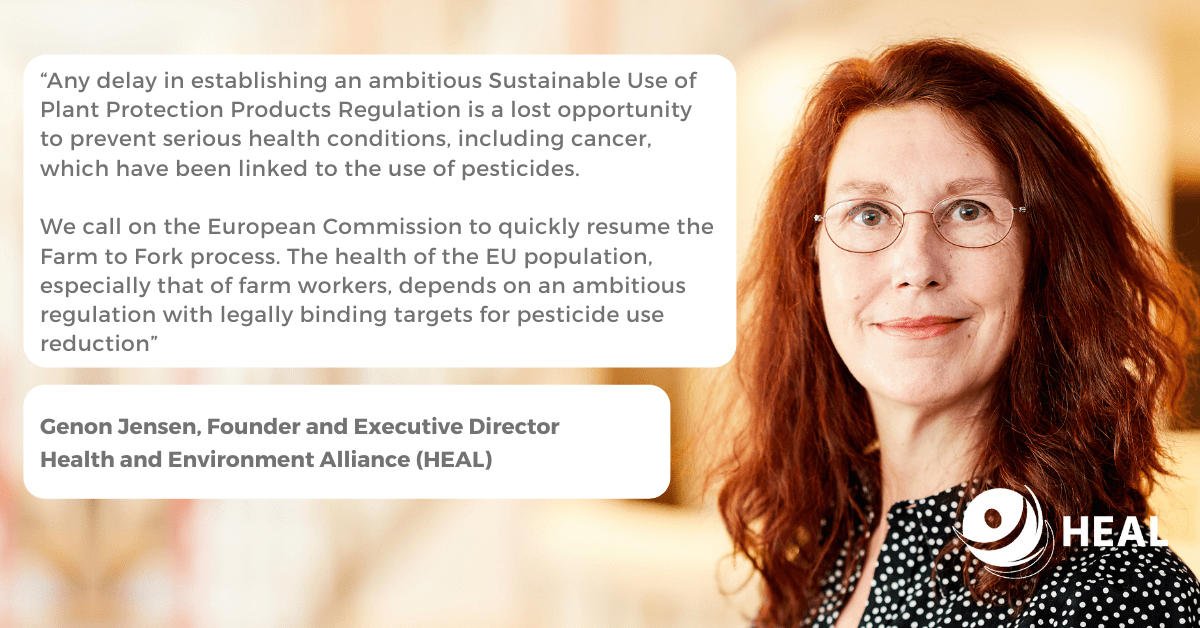Ahead of a key vote in the European Parliament, HEAL is one of over 550 civil society organisations from 40 countries, including all EU member states, urging democratic forces to act for a strong and independent civil society, including through adequate funding.
Responding to the European Commission’s deferral [1] of today’s College discussion on the Sustainable Use of Plant Protection Products Regulation (SUR) proposal contrary to what was originally announced [2], the Health and Environment Alliance (HEAL) voices its concern over the delay of this much needed and overdue revised legislation as part of the delivering on the EU Green Deal and the Farm to Fork Strategy.
“Any delay in establishing an ambitious Sustainable Use of Plant Protection Products Regulation is a lost opportunity to prevent serious health conditions, including cancer, which have been linked to the use of pesticides”[3], said Génon K. Jensen, HEAL’s Executive Director.
“We call on the European Commission to quickly resume the Farm to Fork process. The health of the EU population, especially that of farm workers, depends on an ambitious regulation with legally binding targets for pesticide use reduction”, she added.
The SUR proposal is the EU’s pesticide framework, developed in line with the objectives of the bloc’s flagship Farm to Fork strategy. It is expected to halve the use and risk of chemical pesticides as well as the use of hazardous pesticides by half by 2030 across the EU. The new Regulation, which was expected to be released on 23 March, should replace the 2009 Sustainable Use of Pesticides Directive (SUD), upgrading the legislation from a directive to a regulation to ensure coherent implementation of the policy, enforcement and compliance to uniform rules among Member States.
Earlier this week, HEAL was one of the over 50 civil society organisations writing to the EU Commission to underline the risk of delaying this key piece of legislation for preventing disease [4].
In addition, more than 500 scientists warned that abandoning environmental regulations to scale up food production was not the right tool to address food security, and that only a just transition towards sustainable food systems could increase resilience against future crises [5].



